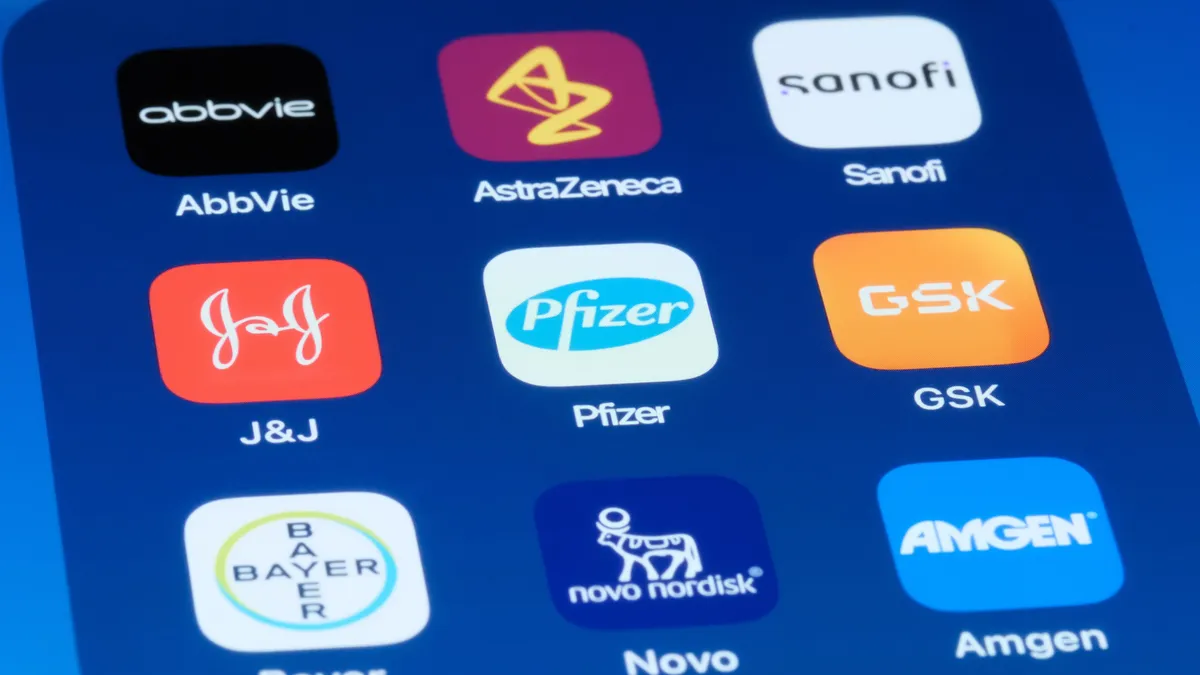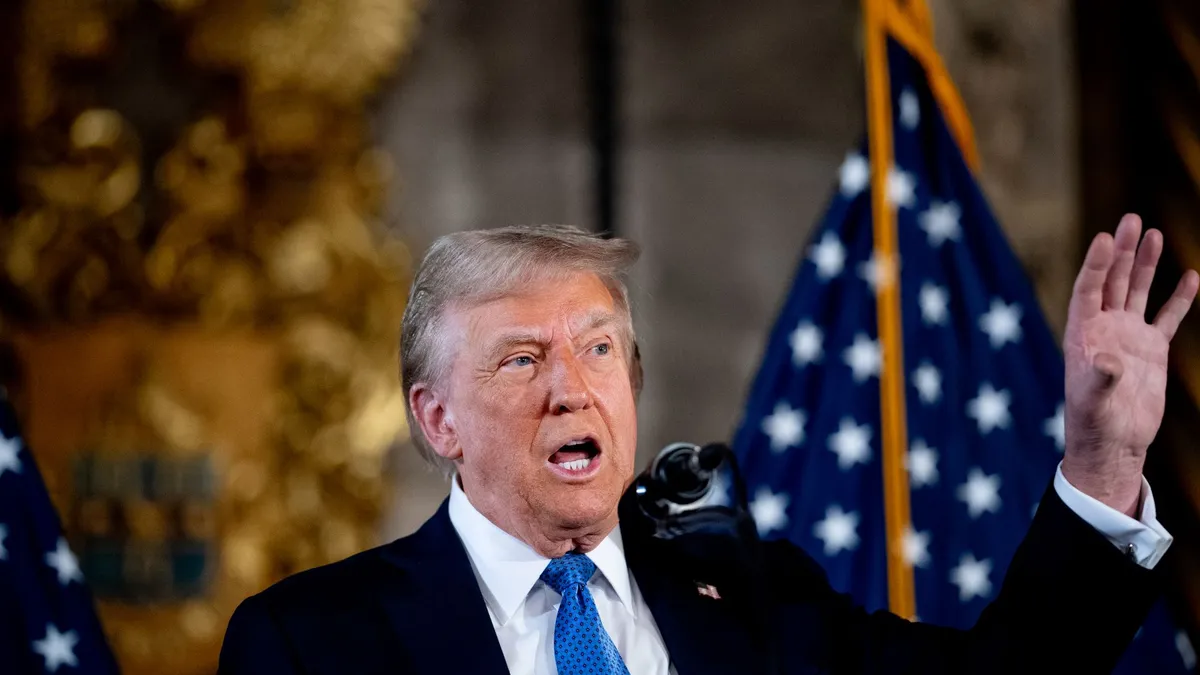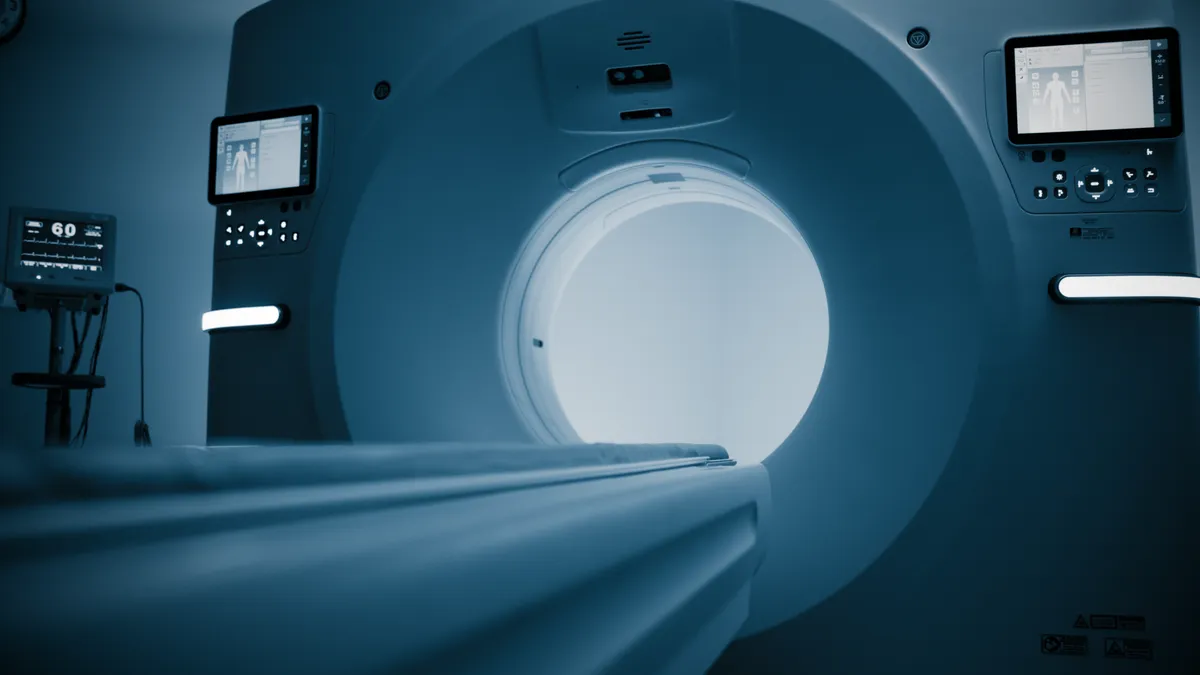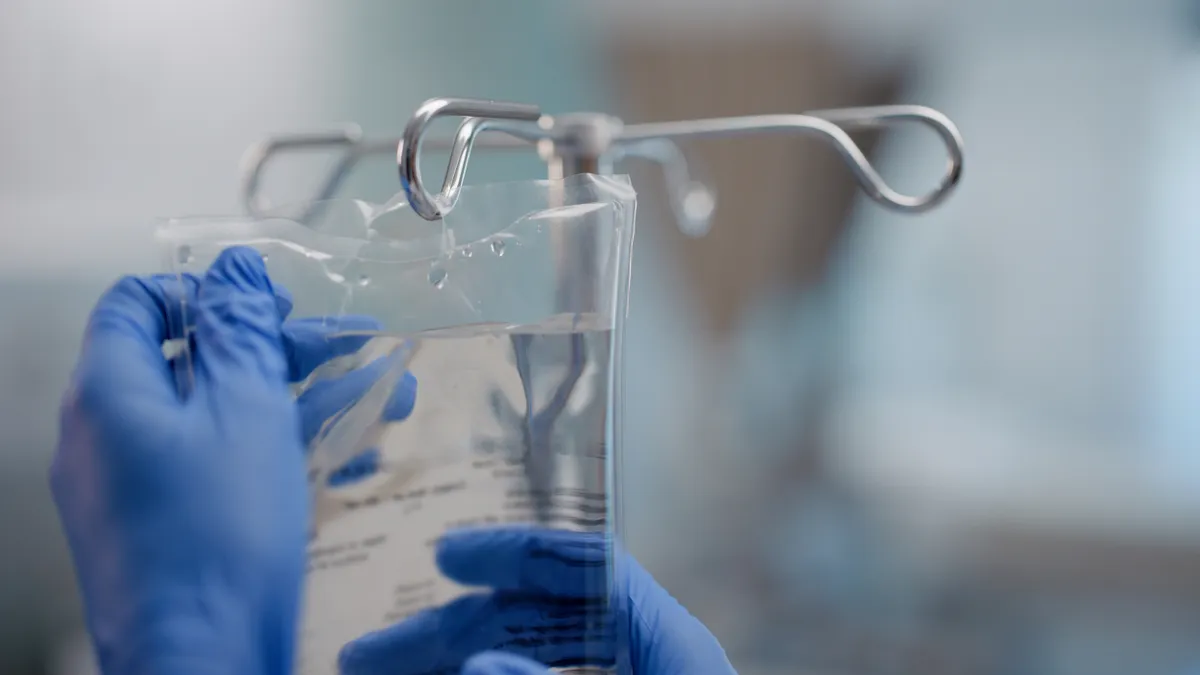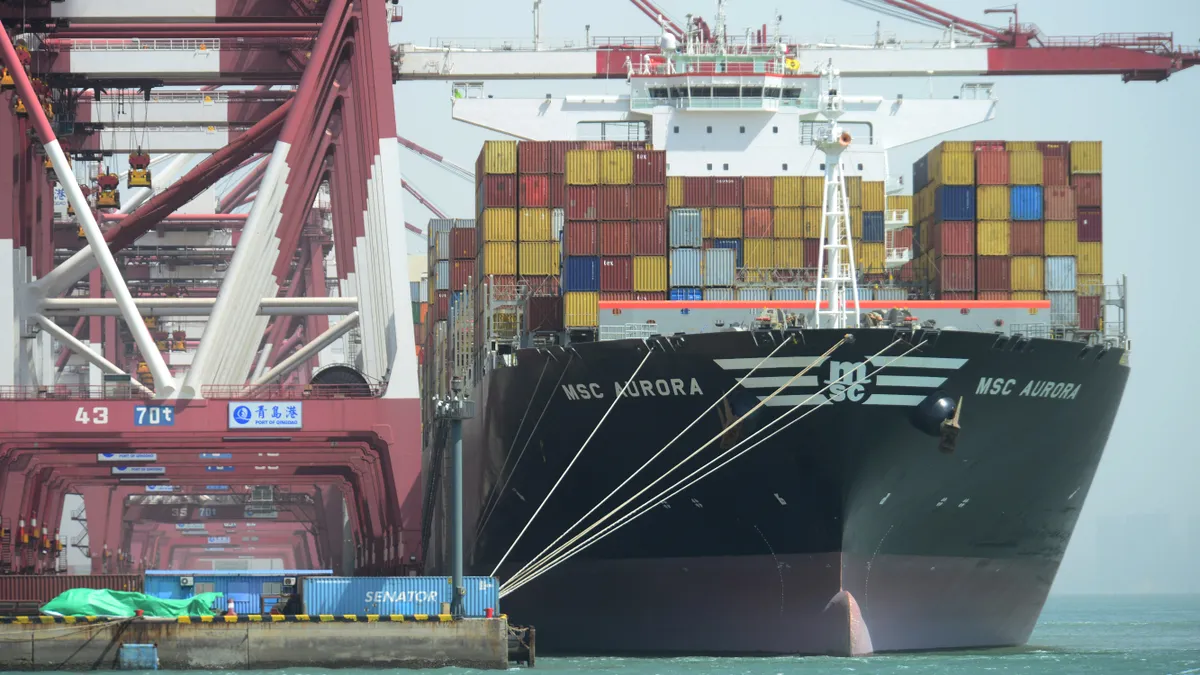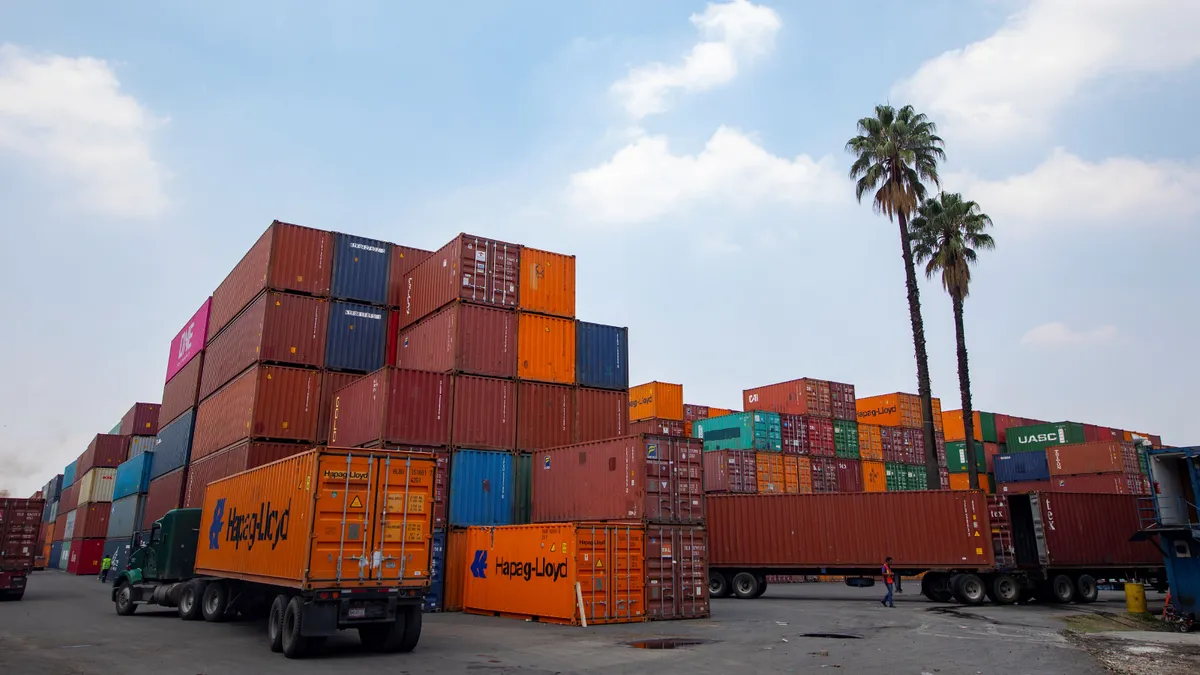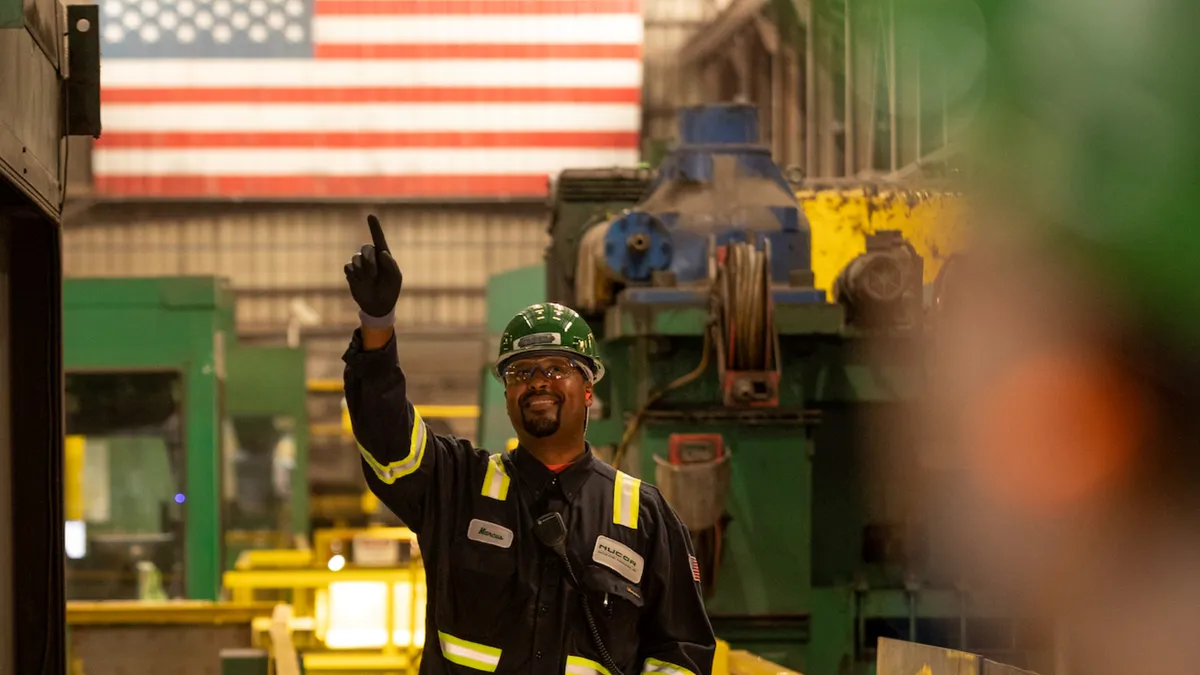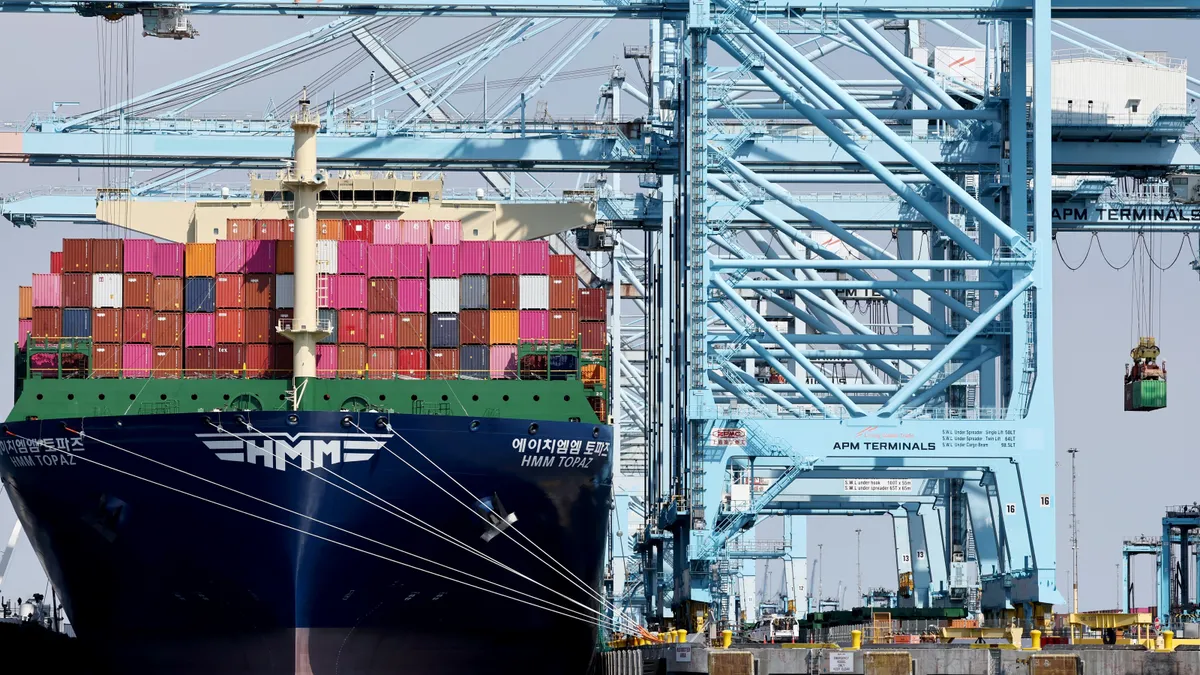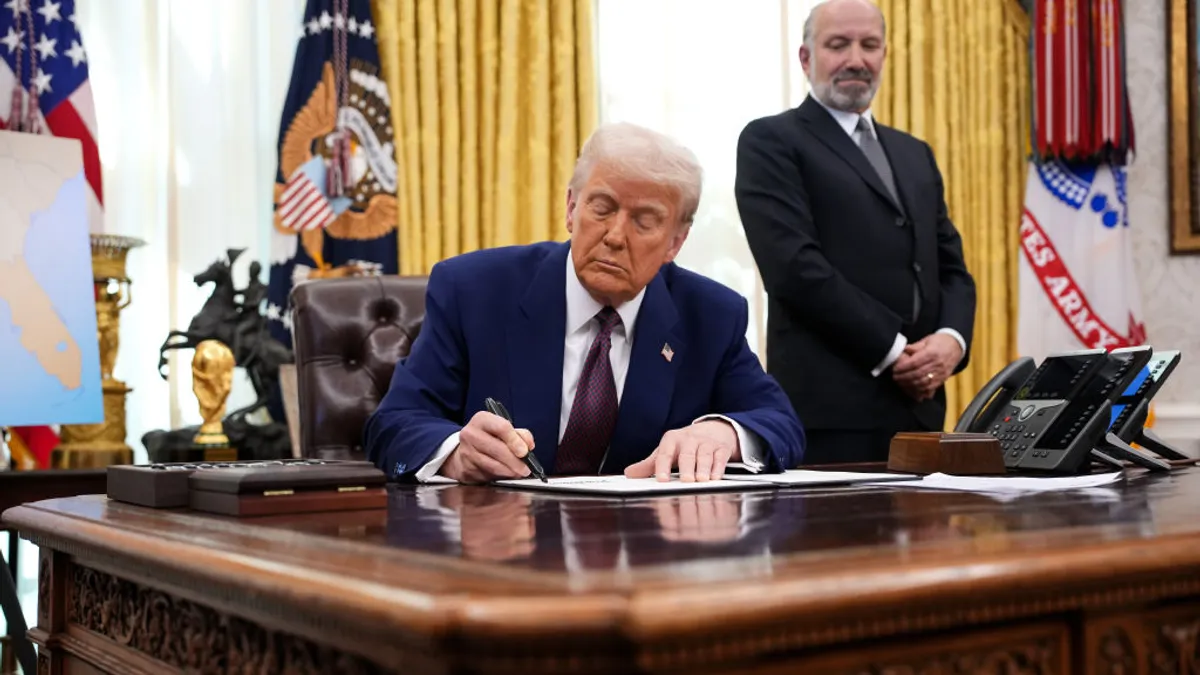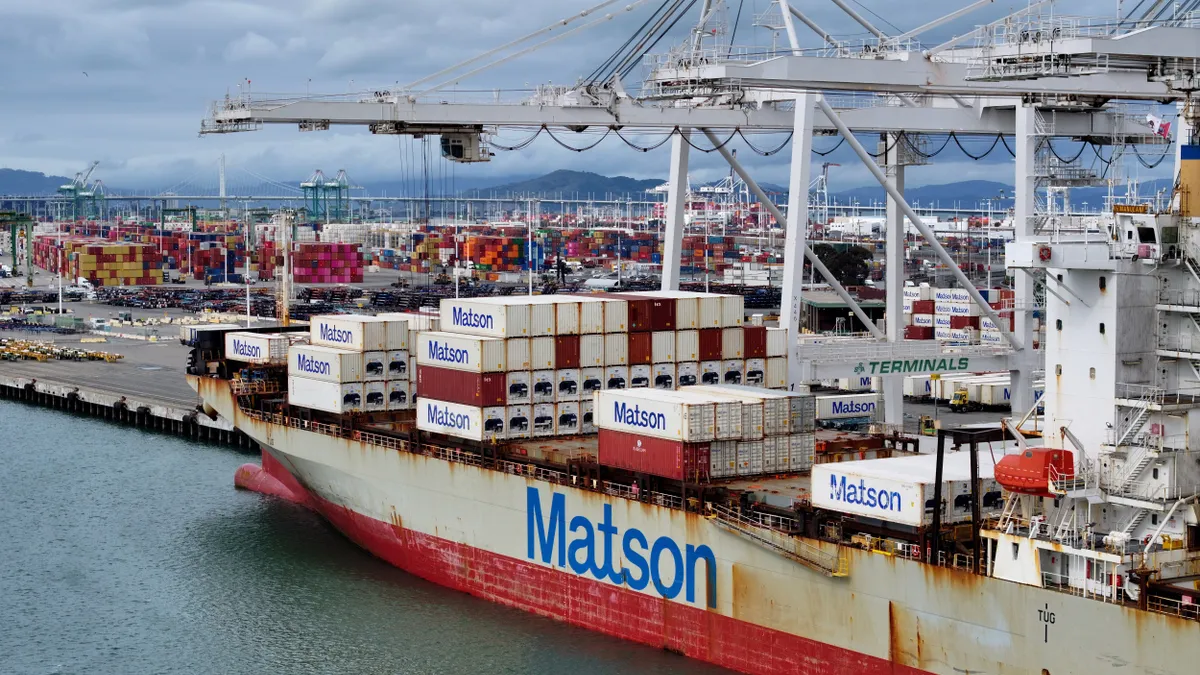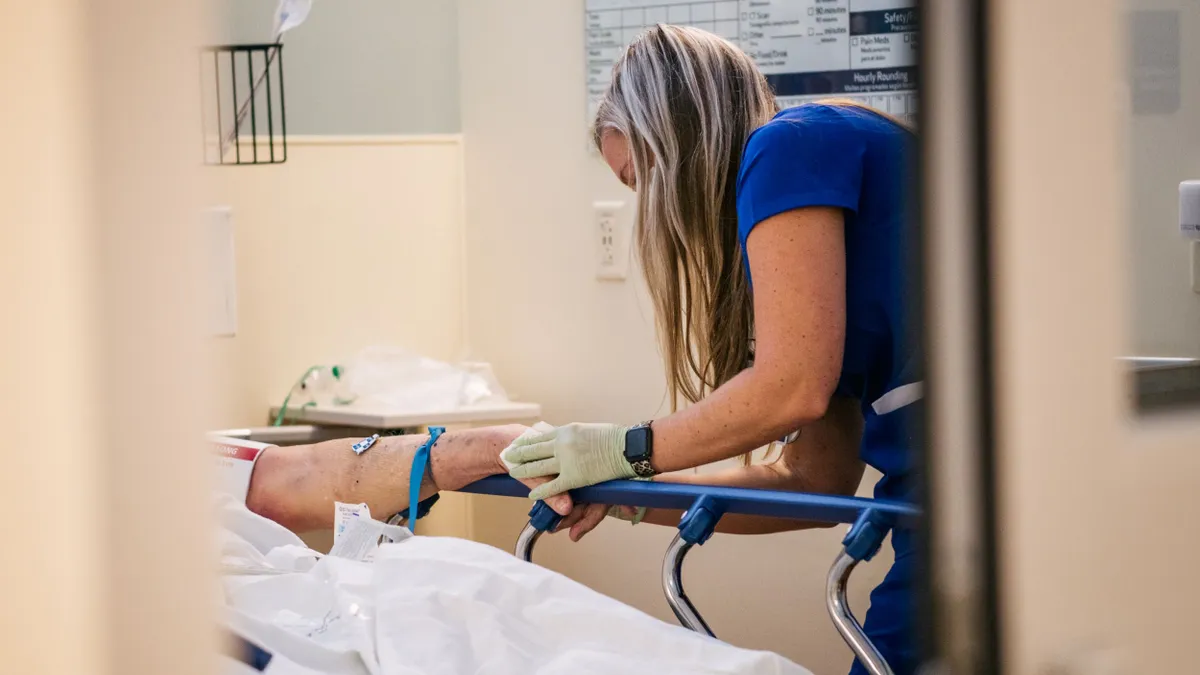As President Donald Trump’s tariff policies continue to evolve, medtech investors will be focused on companies’ plans to manage the impact on supply chains when they tune into first-quarter earnings calls starting this week.
Stock prices for some of the sector’s largest companies, such as GE Healthcare and Intuitive Surgical, have come under pressure amid fears about how Trump’s trade wars will affect manufacturers’ businesses.
The tariff plans have brought concerns across industries about the repercussions for global trade. GE Healthcare and Medtronic were among more than 20 U.S. companies that participated in a roundtable meeting last week with China's Ministry of Commerce.
Expect tariffs to be “highly topical” on first-quarter calls, where companies could discuss how to rejigger manufacturing to match geographies and reduce exposure to tariffs, Morningstar analyst Debbie Wang said in an email.
15 companies to watch this earnings season
On Friday, a GE Healthcare spokesperson told MedTech Dive the company would provide an update on the tariff situation on its next earnings call. In February, the company said its 2025 outlook for earnings before interest and tax incorporates an impact from China tariffs of about 10 basis points.
“Our teams are working on potential mitigation plans as these trade policies evolve,” the spokesperson said via email. “Our top priority is to make sure patient and customer deliveries for products and services are not interrupted under any circumstances, while maintaining the best possible quality and cost. This is a dynamic issue.”
Earlier this month, China’s Ministry of Commerce also began an anti-dumping investigation of X-ray tubes from the U.S. and India used in computed tomography machines. A GE Healthcare spokesperson told MedTech Dive at the time that the company did not think the investigation was a material risk to its business in China.
Medtronic is also monitoring global tariff policies and will “continue to assess potential impacts to the company and implement mitigations if necessary,” a spokesperson wrote in an email.
Confusion on reciprocal tariffs
Trump announced a 90-day pause on most reciprocal tariffs last week, in a turnabout from his “Liberation Day” declaration of hefty tariffs on imported goods from most U.S. trading partners. The president also raised total duties on imports from China to 145%. Countries besides China remain subject to a 10% baseline tariff.
Analysts emphasized that the pause on reciprocal tariffs is temporary.
“Despite this 90-day pause, we wouldn’t be surprised if the administration moves forward with implementing tariffs,” said Wang. “However, it’s not clear that any potential reciprocal tariffs would significantly impact the large medical device makers.”
During fourth-quarter calls, device makers including Boston Scientific, Edwards Lifesciences and Zimmer Biomet said the potential impact from tariffs was factored into their full-year guidance ranges. “Most management teams seemed to downplay it as modest to immaterial,” noted Wang.
However, some smaller companies, such as Masimo and Enovis, said during fourth-quarter calls that new tariffs, particularly on products sourced from Mexico, had the potential to affect their financial results.
Intuitive Surgical said in January that a “significant portion” of its instruments are manufactured in Mexico, so tariffs implemented there could have a material effect on the company. However, the company has not yet included a tariff impact in its profit forecast.
J.P. Morgan analyst Robbie Marcus, in a note to clients Monday, wrote that Mexico has been left off of the reciprocal tariffs list for now, but the country is subject to a roughly 25% tariff, with the exception of goods compliant with the United States-Mexico-Canada Agreement.
“We think the worst case scenario has so far been avoided for Intuitive,” Marcus wrote.
“Our top priority is to make sure patient and customer deliveries for products and services are not interrupted under any circumstances, while maintaining the best possible quality and cost. This is a dynamic issue.”

GE Healthcare
Spokesperson
RBC Capital Markets analyst Shagun Singh, in an April 3 report, said the implementation of tariffs would likely be an “incremental headwind” to most of the medtech companies the firm covers, as device makers find ways to offset their exposure, with potential impacts beginning to show up in the third quarter and beyond.
Meanwhile, AdvaMed and other healthcare organizations have continued to press the White House to exempt medical devices and critical supplies from tariffs. AdvaMed CEO Scott Whitaker said in a statement last week that the lobby group would work with the administration in the coming weeks to protect the device industry.
“Moving forward, we will spend the next 90 days working with the President and his senior team to ensure the unique role of the medtech industry is protected,” Whitaker wrote, “with the hope that the ultimate outcome is ‘zero for zero’ tariffs on medtech with all key trading partners.”









